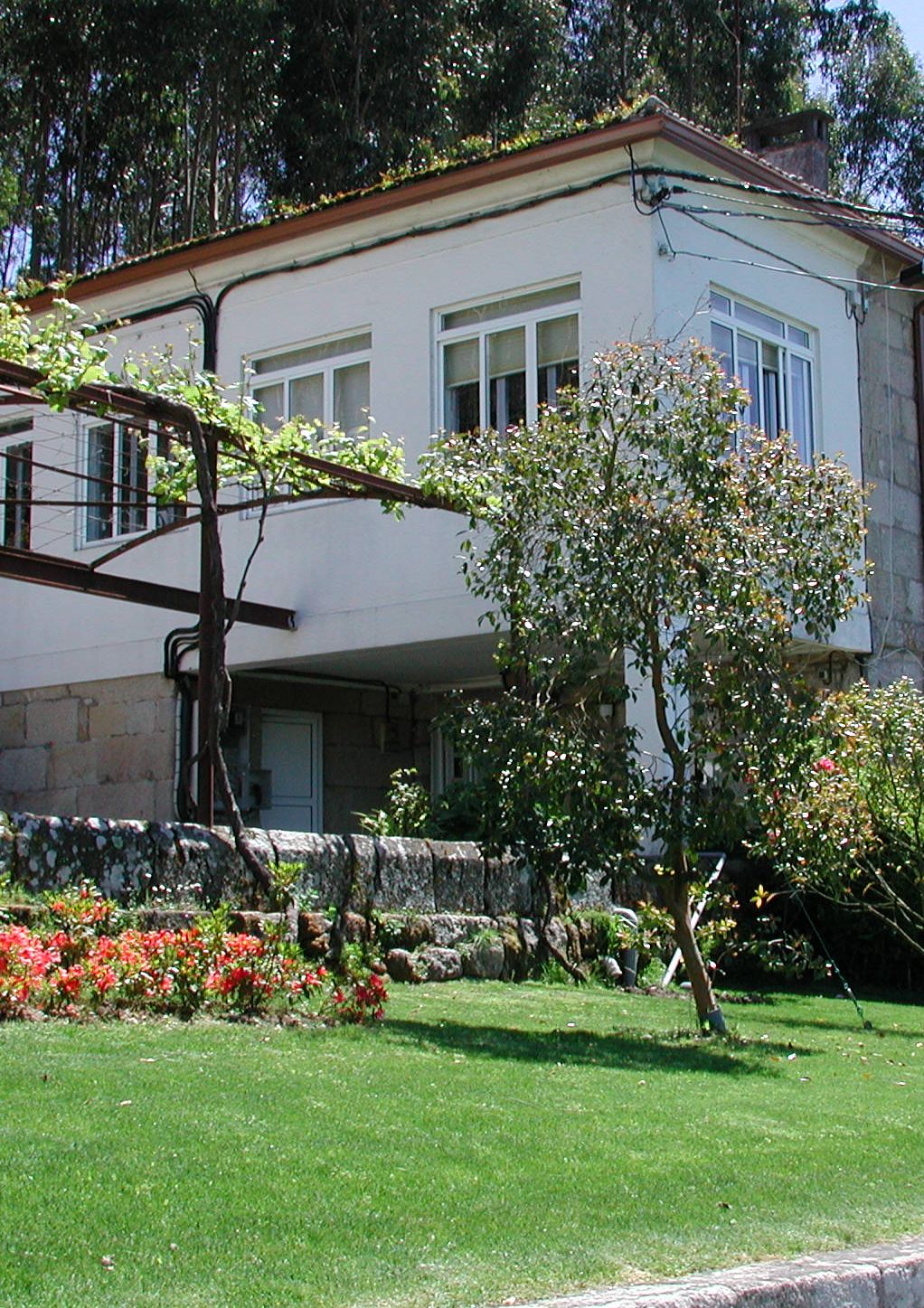
UNIDAD ASOCIADA "SISTEMAS AGROFORESTALES": ESTACIÓN FITOPATOLÓXICA DO AREEIRO - MISIÓN BIOLÓGICA DE GALICIA

UNIDAD ASOCIADA "SISTEMAS AGROFORESTALES": ESTACIÓN FITOPATOLÓXICA DO AREEIRO - MISIÓN BIOLÓGICA DE GALICIA |
||||
| Home » About Us » History |
| History |
The Estación de
Fitopatolóxica do Areeiro was founded in 1980 by the Excma.
Diputación Provincial de Pontevedra (Pontevedra provincial governement)
as a branch of the Agricultural Service. This centre was created with the
objective of solving the plant sanitary problems present in our cultures, which
may led to yield reduction and/or death of the plants affected.
The diversification of cultures and intensive plantations,
both indoors and outdoors, increased the difficulties of cultivation and
consequently there was an economical loss due to plant sanitary problems. The
identification and classification of the pathogens detected, the diagnosis of
the disease and its treatment, needed the work of technicians with specialized
knowledge on the field. Thus, the Plant Pathology Station was created to help
farmers and growers on this matters.

The main aim of the Station (still prevaling) is to give
assistance to farmers and Official Services on the identification of pests
(insects) and fungal diseases affecting their crops, as well giving advice on
the control measures they should perform to avoid losses in their
cultures.
From 1981 to 1984, the station had an experimental
character, and was established in the "Areeiro" farm (This estate had
previously been a cattle farm). The institute is 3 km. away from the city of
Pontevedra and has an area of 5 ha., an adequate location and environment to
create laboratories and areas for assays.
In the beginning, the work of the station was directed
towards the diagnosis of pests and fungal diseases. With the information
obtained, they edited Phytosanitary Bulletins, in which they gathered
information on the main pathogens found in our region and the control measures
to be taken.
In 1984, we widened our activities on plant pathology, and
apart from pests, nsects and fungal diseases, we started to diagnose other
organisms such as bacteria and nematodes.
In the same year, we created a new department, the Crop
and Ornamentals Department that has as a main aim the preservation and recovery
of local fruit- bearing varieties (stone and pip fruit), and the introduction
of new species and varieties suitable for the climate and soil conditions of
the region, as well as carrying out studies on the acclimation of these
species, and on agronomy. The results obtained from this research work are
communicated to growers by means of conferences and publications, giving advice
on every aspect related to cropping.
In 1989, the Department of Soil Analysis was created. This department analyzes soil samples brought both by local growers, companies and public institutions. From the interpretation of the results obtained we give advise to growers on the use of the appropriate soil fertilizers and amendments.
In 1993, we founded the first laboratory of Biological Control in Galicia. In this unit we carry out experimental methods of artificial breeding of beneficial arthropods for forest and agriculture in Galicia. At present, some of these beneficial organisms are being massively reared, in order to optimize (and subsequently transfer) the sanitary techniques performed against the pathogens and pests affecting the main crops in our region.
In addition, the Plant Pathology Station web page includes
the section "Phytosanitary Warnings" elaborated collecting and registering
relevant data in the field, such as environmental conditions of the region,
field monitoring ...and information on the pest or disease detected and the
apropriate control measures to be taken. When relevant for growers, this data
is also disseminated by the media.
Apart from diagnosis, research has been a major aim for our
departments; but these studies have been always directed towards the
agricultural sector
Our research projects have been funded by different bodies
and institutes: EU, Comisión Asesora, INIA, Xunta de Galicia, CDTI,
CAICYT, and have been performed in collaboration with other research centres or
by the plant pathology station alone.
These projects covered different areas: soil and climatic
needs, fertilization assays, agronomic studies (plantation systems, pruning,
irrigation, etc…), knowledge and solution of both cropping and
phytosanitary problems, etc….
Other important aim of the Phytopathology Station has been
the communication of the results obtained with its research and to disseminate
them in Scientific Journals, books of proccedings, or by the Publication
Service of the Diputación de Pontevedra.
Being aware of the importance of training, we have
organized courses for growers and agricultural technicians on our different
working areas: fungal diseases on vineyard, pathologies in kiwifruit,
ornamental cultures, pruning, etc... in order to improve crop yield and plant
condition. They have been developed with the cooperation of the INEM (National
Employment Service), the University of Santiago de Compostela, S.E.A., Official
Colleges, C.P.A.M. and the Diputación Provincial de Pontevedra.
In short, the main aim of the Excma. Diputación de Pontevedra is to give advice and assist farmers, and interact with other research Centres (national or foreign) in order to have a general view of the agricultural reality.